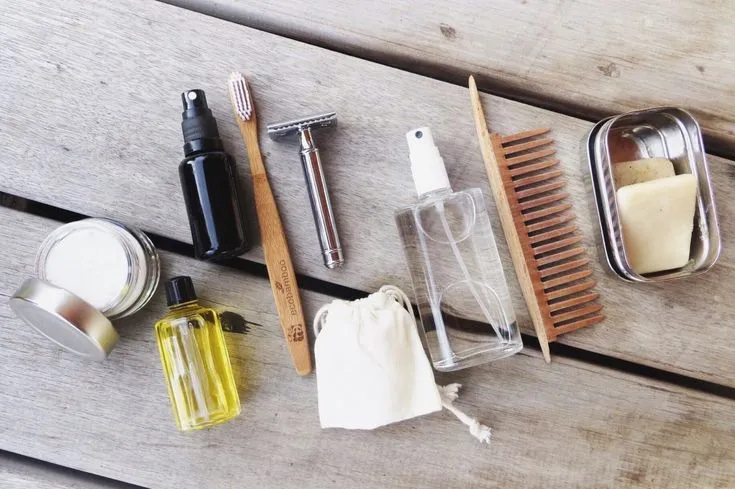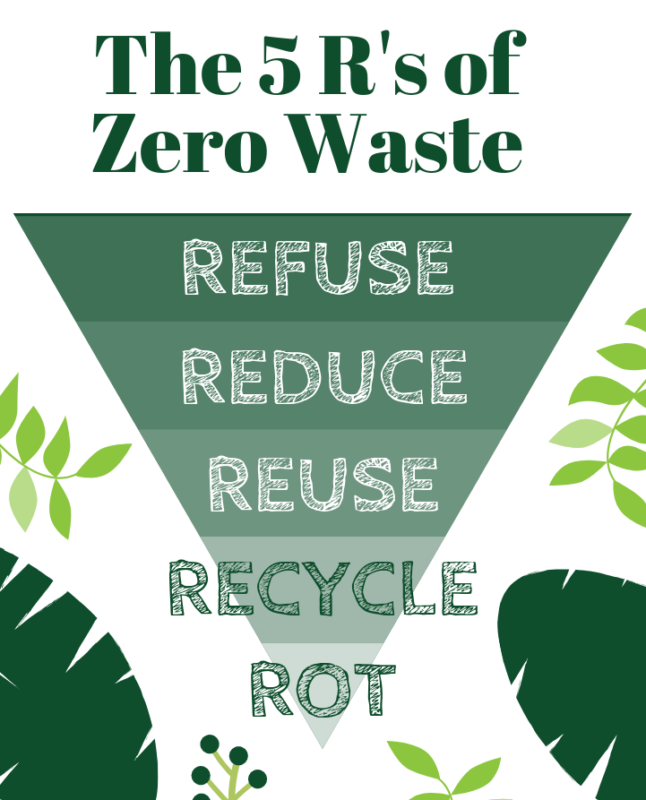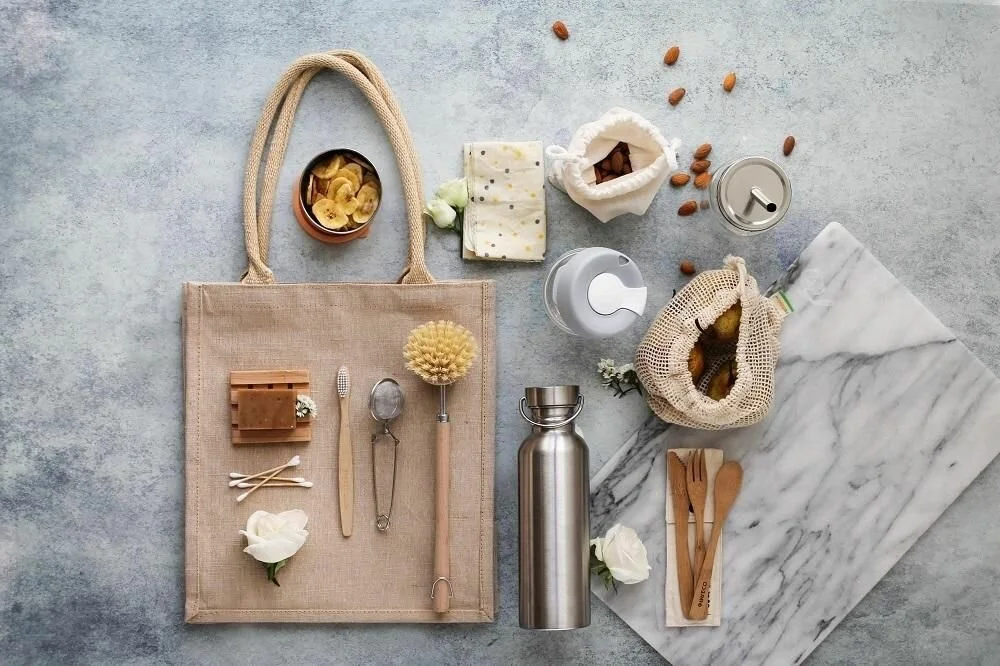Environmental pollution is the most urgent ecological problem. In the process of human activity garbage is formed, most of which cannot be reused. Thus, the Zero Waste concept has become known as a project that can reduce the volume of garbage, thereby significantly improving the environmental situation.
1) Zero Waste Concept
2) History of the concept
3) 5R Principle – Bea Johnson’s Pyramid
– Refuse
– Reduce
– Reuse
– Recycle
– Rot
4) 20 simple rules on the road to Zero Waste lifestyle
1. Zero Waste Concept
The main objective of the Zero Waste concept is to reduce waste. This is achieved by using reusable items that can be recycled, so that this waste enters the natural cycle of substances. According to zero waste participants, reusable products help reduce damage to the environment, as well as to the health of animals and other people.
The Zero Waste Movement opposes the disposal of hazardous substances that pollute soil and water. According to its activists, the main problem is environmental irresponsibility, laziness and lack of desire for a positive change.

2. The history of the concept
An early version of this concept was called “Zero Defects”. This term originated in the early 70s at the Toshiba Corporation. Thanks to a unique approach to production, the company has managed to eliminate the production of products with defects. For 1 million finished products, only 1 defective product was found.
The term “Zero Waste” appeared later, in the mid-70s in the United States. In this period Zero Waste Systems Inc. was founded, which set itself the task to find a use for wastes from the electronics industry. The company collected chemical waste that, after processing, was reused in various fields. The waste went to the production of solvents, engine oils and other products.
The environmental movement gained popularity in the early 2000s. Interest in Zero Waste continues to grow. Today this concept is supported at the state level in many countries of the world.
3. Principle 5R - Bea Johnson's Pyramid
After the spread of this concept, the problem arose of how to apply it in everyday life. Then activist Bea Johnson developed a practical plan for zero waste consumption. The principles of the concept of “zero waste” in large cities and small communities are the same and lead back to the reduction of non-recyclable products from their vital activity.

5 R – Zero Waste philosophy
Principle 5R includes:
Refuse
Reduce
Reuse
Recycle
Rot
Refusal of useless
In order not to throw unnecessary things in the trash, you need not buy them. This is the first rule of the Zero Waste concept. A person just needs to buy what he/she really needs. Useless things always end up in the trash can.
Reducing the production of waste will allow you to fight for minimalism and control your desires. Avoiding unnecessary goods eliminates unnecessary waste. This also applies to distributing printed advertising, free gifts and souvenirs that are useless. In addition, if you refuse disposable products, it not only reduces waste but also the measure helps to live a healthier life. This is because most disposable products are made from hazardous materials, while reusable products are made in an environmentally friendly and body-safe way.
Decrease in consumption
Often, we buy an excess of products, for example, because there were good discounts in the store. And surely in the house of each person, there are things that have never been used. This also includes clothes, books, and cosmetics.
Many people tend to constantly buy what they do not need, and this leads to the formation of garbage. This is especially common due to the development of online trading. It is so easy to click with the mouse and tomorrow open the door to the courier and receive the goods.
To achieve zero waste, you need to get rid of everything that is not needed in the house, and in the future do not buy products that have no real value and generally limit consumption, aiming at minimalism.
Reuse, Re-Purpose And Repair
Believe it or not, most everyday disposable items can be replaced with reusable items. For example, plastic bags are replaced with cotton bags that will last many months. You can also put products into reusable plastic or glass containers brought from home while shopping, replacing with them the film or other store packaging materials, which are usually thrown away immediately after unpacking.
By following this principle, you can reduce waste and save money. Reusable products are used for a long time while disposable products are thrown away immediately after purchase. For example, you can always carry a bottle with you to drink and draw water directly into it. Another great example is a glass milk bottle into which you can pour milk from a vending machine.
The principle of reuse also provides for the repair and renewal of used objects. Instead of buying new appliances every time, have them repaired. It can also include various creative ideas for changes in design or purpose. For example, you can sew children’s clothes from the unnecessary mother’s dress, as well as create fun toys from an old sweater or socks, you can use an old bicycle as décor for a flower bed, or you can make comfortable garden chairs with used pallets.
Recycling
Following the principles of the “0 Waste” idea, the production of waste will be greatly reduced. And the remaining waste, in accordance with the fourth rule, must be properly separated into groups and sent for recycling accordingly. Thanks to this, the waste will go to a recycling station or factory and will not go to a landfill, where it will pollute the environment.
Rot – Composting
A large percentage of daily household waste is food waste. They must be composted according to the concept of “zero waste”. Composting is easier to organize in a private house, but there are some solutions for apartments, for example, electrical composers. Or at least you can collect coffee and tea wastes and use them as a fertilizer for the plants in your apartment.
Composting is the best solution for organic wastes since all organic wastes are converted into fertilizers that benefit the soil.




4. 20 simple rules on the road to Zero Waste lifestyle
At first glance, it seems that life without waste is impossible. But following the rules below will allow you to convince yourself of the opposite.
Checklist for Zero Waste style life:
- Do water filtration at home, do not buy bottled water.
- Take a shower instead of a bath.
- Use only the washing machine or dishwasher fully loaded (but not overloaded).
- Do not use plastic packaging (use boxes made of cardboard, paper, and natural materials).
- Buy such an amount of food that will definitely be eaten and not thrown away.
- Buy products in bulk, not pre-packed.
- Buy products by weight and put them in containers brought from home.
- Use durable fabric shopping bags instead of plastic bags.
- Turn off unnecessary electrical appliances and chargers, as they consume energy in vain.
- Turn off the light when you leave the house.
- Replace light bulbs with energy-saving ones.
- Boil water in quantities not exceeding your needs.
- Refuse disposable products (paper napkins, shaving razors, plates, toothpicks, drink straws) in favour of reusable ones.
- Separate collection of waste paper from other wastes.
- Donate unwanted books to libraries or places where people can exchange them for free.
- Donate unnecessary clothes, equipment, shoes, and toys to people who need them.
- Collect waste in biodegradable bags and separate it properly.
- Dispose of batteries at designated recycling points, they are extremely polluting when they start to decompose.
- Be rational or even parsimonious when it goes about food and energy.
- Being creative in re-using/re-designing/re-purposing unnecessary things is not only useful, but also funny!
Well, what’s is your score? Hope it’s 20/20! If not, you have to do some additional steps on the way to zero waste life!

If you have any other brilliant ideas or experiences, share them with our readers in comments!








Add a comment